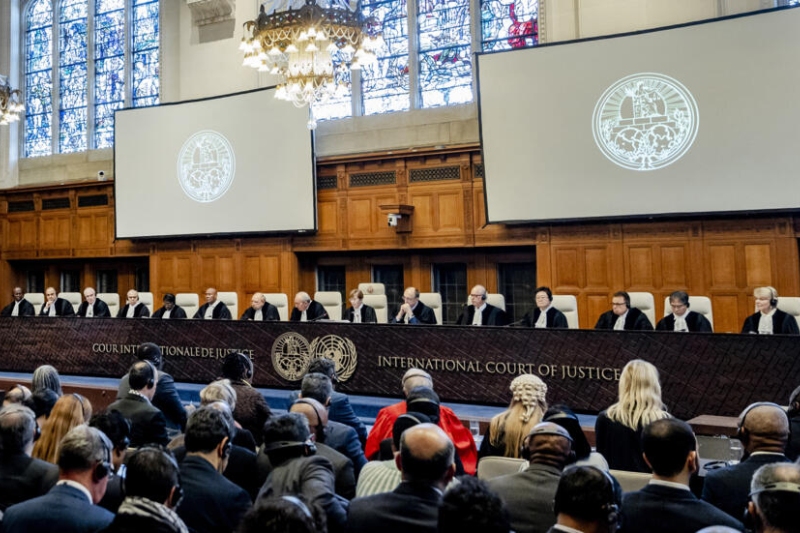In a landmark decision, the International Court of Justice (ICJ) issued an interim verdict in response to South Africa’s lawsuit against Israel, accusing the latter of committing acts of genocide in Gaza. The highly anticipated ruling addresses critical aspects that have garnered global attention and raised questions about the ongoing conflict.
ICJ’s Decree on Genocide Prevention
The ICJ, in its provisional measures, has ordered Israel to take immediate action to prevent crimes of genocide in Gaza. While the court refrained from calling for a complete cessation of hostilities, it emphasized the need for Israel to curb activities that may contribute to acts considered violations of the Genocide Convention.
Gaza’s humanitarian crisis and the ICJ’s Directive
With Israel’s military operation in Gaza resulting in significant casualties and infrastructure destruction, the ICJ has directed Israel to swiftly implement measures ensuring the transfer of essential services and humanitarian aid. This directive aims to address the pressing needs of the population in the conflict-ridden territory.
Keep Reading
Israel’s Response and Legal Authority
Israel had contested the ICJ’s authority to hear the case. However, the President of the ICJ, Judge Joan Donoghue, affirmed the court’s jurisdiction. The ruling underscores the disagreement between the parties, with Israel consistently denying allegations of genocide. The court acknowledged South Africa’s claims under the 1948 Genocide Convention.
Israel’s Obligation to Prevent and Punish Incitement
In addition to preventing genocide, the ICJ cautioned Israel to “take all measures in its power” to prevent and punish any incitement to massacre. This directive reflects the court’s commitment to curbing actions that could lead to the destruction of a substantial part of the Palestinian group, as per the Genocide Convention.
Reporting requirements and international legal duties
Israel is mandated to submit a report within one month detailing the steps taken to comply with the court’s directives. Judge Donoghue emphasized that this reporting requirement imposes obligations on Israel under international law, holding it responsible for its actions in Gaza.
Hamas’s Response and International Isolation
Hamas, the governing authority in Gaza, welcomed the ICJ’s verdict, considering it a significant development that contributes to isolating Israel. The Hamas statement emphasizes the implications of the court’s decision regarding Israel’s actions and alleged crimes in Gaza on a global scale.
The ICJ’s interim ruling on Israel’s alleged acts of genocide in Gaza marks a crucial moment in the ongoing conflict. As Israel faces international legal scrutiny, the directives from the court set the stage for potential shifts in the dynamics of the Israel-Gaza conflict. The reporting requirement adds a layer of accountability, emphasizing the importance of compliance with international law in addressing humanitarian crises and preventing genocidal acts.

